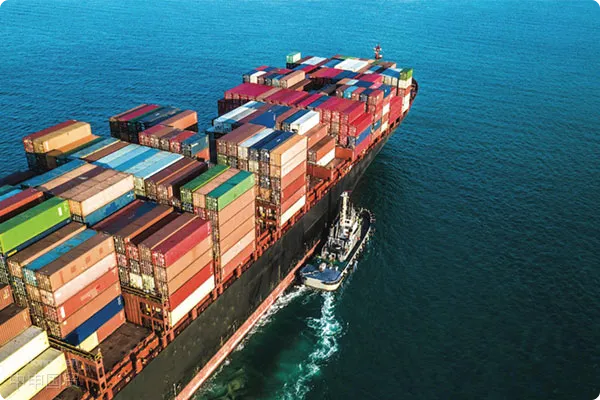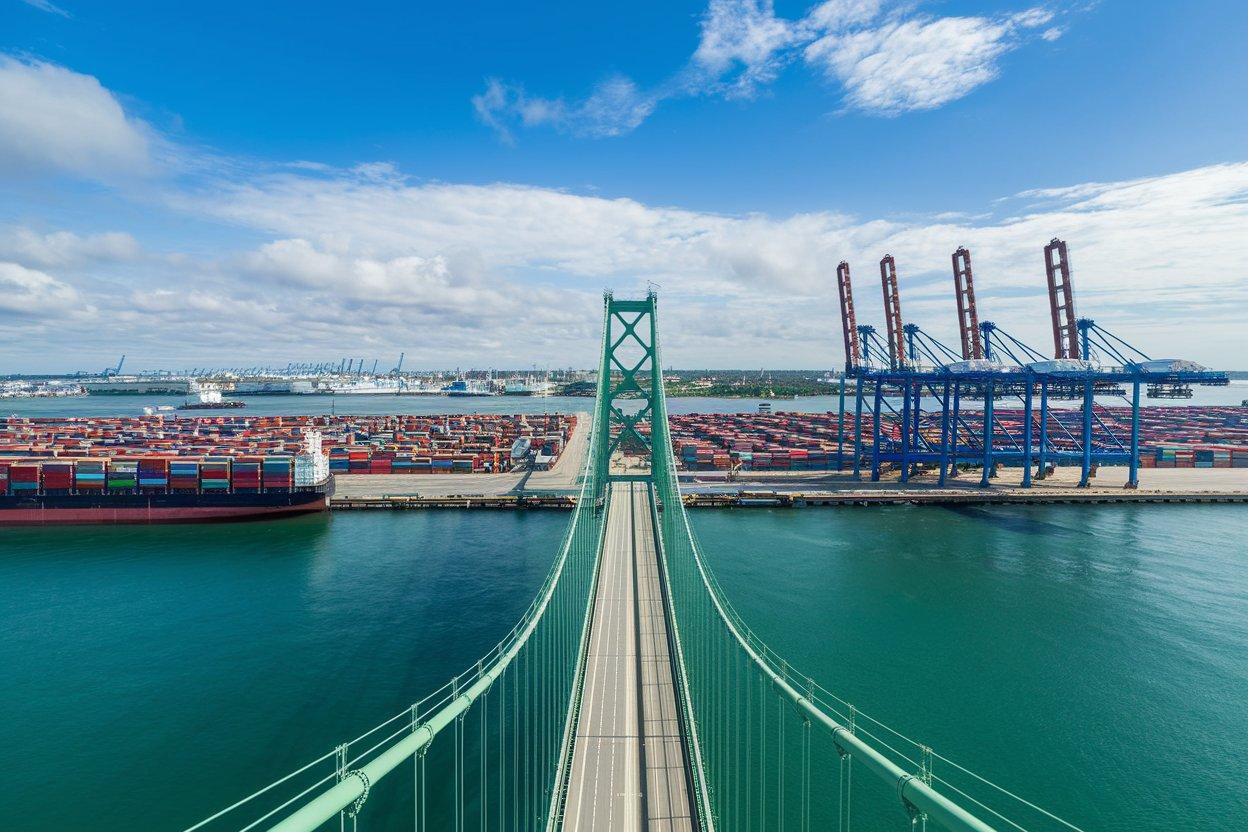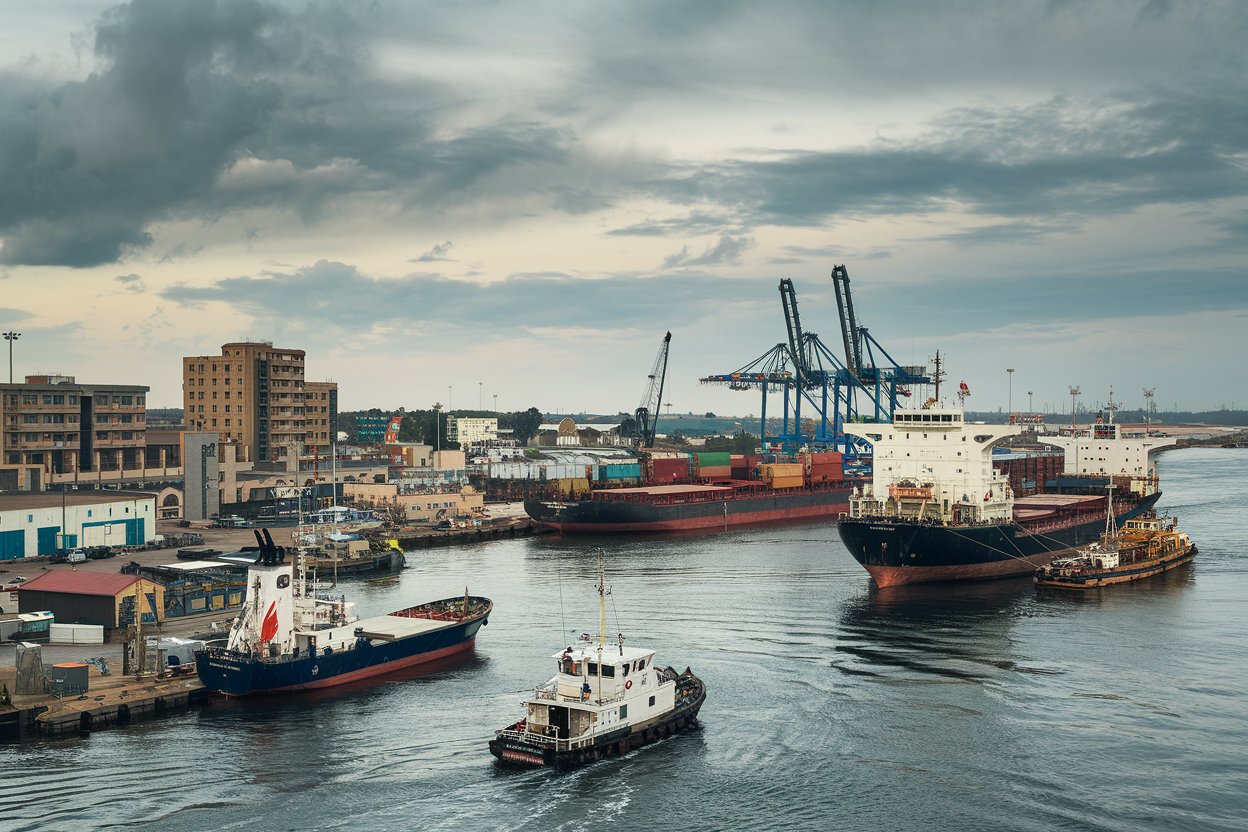Why Do Equipment Export Customs Declarations Frequently Get Stuck? An Expert Analysis of Key Stages | Professional Export Agent
小说区图片区偷拍区视频 |
无人区码一码二码三码区 |
青草伊人久久综在合线亚洲 |
美美女高清毛片免费视频 |
97久久夜色精品国产蜜桃 |
白嫩丰满少妇一区二区三区 |
欧美日韩亚洲中文字幕一区 |
午夜精品国产一区二区电影 |
国产精品久久久久久一区 |
最新中文字幕乱码不卡一区 |
不卡在线一一区二区三区91 |
国产激情av一区二区三区 |
久久国产精品一区二区三区精品 |
小泽玛利亚影片在线观看 |
中文字幕高清在线一区二区不卡 |
国产精品国产三级农村妇女 |
国产91亚洲精品久久久 |
欧美精品欧美一区二区精品久久久
|
国产一区二区精品久久呦 |
亚洲国产日韩精品一区二区三区 |
欧美中文字幕精在线不卡 |
欧美久久久久久久一区二区三区 |
日韩av在线亚洲一区二区三区 |
精品人妻潮喷久久久又裸又黄 |
久久久精品国产亚洲av网麻豆 |
国产精品熟女av老熟女 |
欧美午夜一区二区三区精品 |
欧美日韩免费一区二三区 |
国产肉丝精品91一二区 |
精品一区二区三区的天堂 |
国产亚洲加勒比久久精品 |
精品美女视频一区二区三区 |
黄色三级电影一区二区三区四区 |
国产欧美精品一区二区在线
|
开心五月激情五月婷婷综合网 |
精品国产女同一区二区三区 |
亚洲欧美另类人妻第一页 |
国产激情av一区二区三区 |
欧美日韩加勒比激情系列 |
亚洲av精品一区二区三区四区 |
欧美一区二区三区四区五 |
日本一区二区在线视频观看
|
精品视频美女一区二区三区 |
国产主播一区二区三区在线观看 |
国产电影一区二区三区在线观看
|
欧美色偷偷在线视频播放 |
国产日韩欧美一区二区在线高清 |
黄色av网址网站能看的 |
中文字幕黄色综合网免费 |
中文字幕人妻一区二区人妻高清
|
欧美日一区二区三区精品 |
亚州中文字幕乱码中文字幕
|
日韩男女激情片段在线观看视频 |
欧美日韩免费电影一区二区 |
国产一区二区三区精品区在线 |
五月婷婷六月丁香在线播放 |
亚洲中文精品久久久久久久38 |
色噜噜日韩精品欧美一区 |
亚洲中文字幕丝袜熟女久久 |
视频区 图片区 小说区免费 |
亚洲精品色婷婷在线观看 |
黄黄黄污污污的免费网站 |
91人妻人人澡人人爽从精品 |
久久偷拍国内亚洲青青草 |
婷婷99久久久精品综合 |
亚洲精品中文字幕乱码二区 |
国产综合av在线免费观看 |
国产电影一区二区三区在线观看 |
国产不卡手机在线观看 |
日本a级一区二区在线免费观看 |
99热这里只有精品2023 |
欧美日韩综合中文字幕一区二区 |
国产盗摄一区二区三区厕所视频 |
欧美色综合天天综合高清网 |
国产日本欧美在线一区二区 |
神马午夜福利影院在线观看 |
亚洲午夜一级艳片欧美精品 |
国产欧美一区二区三区奶水 |
精品人人妻人人澡人人爽人人牛牛 |
欧美日韩中文字幕色费性龙做 |
国产精品亚洲精品日韩已满十八小 |
五月婷久久不能精品视频 |
国产精品日韩av一区二区三区 |
亚洲欧美日韩偷拍一区二区三区
|
欧美日韩加勒比一二三区 |
亚洲婷婷久久一本青青久久网站
|
人妻一本久道久久综合久久鬼色 |
人妻精品未满十八少妇精品 |
国产一区二区日韩欧美在线
|
五月天最新网址精品综合 |
久久99精品久久久免费看永久 |
黑人中出人妻少妇一区二区 |
精品人妻午夜一区二区三区四区 |
精品国产一区二区三区蜜臂 |
欧美大片久久久久久久久 |
国产午夜精品理论片免费视频 |
午夜福利合集极品精品视频 |
国产大学生吞精在线视频 |
丝袜人妻电影一区二区三区 |
亚洲中文字幕日韩一区二区
|
yyy6080韩国三级理论久久 |
制服丝袜视频一区二区三区 |
黑寡妇精品欧美一区二区毛 |
国产精品中文字幕在线观看 |
大香蕉再在线大香蕉再在线 |
亚洲综合色就色在线观看 |
亚洲国产精品线路久久
|
欧美视频在线一区二区三区 |
午夜精品久久久久久久9蜜桃
|
婷婷丁香蜜桃激情五月天 |
亚洲一区二区三区欧美精品
|
亚洲欧美国产精品一区二区三区 |
久久这里只有精品一区二区三区 |
精品国产污免费网站入口 |
99久久免费国产精品2021 |
大香蕉欧美人妻一二三区 |
欧美人在线一区二区三区 |
成片免费视频观看大全一起草 |
日本高清不卡电影一区二区 |
亚洲电影天堂之男人的服务天堂
|
人人妻人人澡人人爽人人精品不卡 |
日韩av一区二区三区网站 |
国产伦精品一区二区三区2 |
欧美日韩亚洲中文字幕二区网址 |
国产在线精品一区在线观看麻豆
|
韩日国产精品一区二区三区 |
91精品国产91久久福利 |
日韩免费高清中文av |
国产精品妇女久久久久久 |
美女洗澡私拍一区二区三区 |
亚洲欧美中文日韩另类特殊 |
欧美亚洲成人一区二区三区 |
国产精品国产三级国产专区 |
欧美国产日韩二区一区在线 |
飞极速在线观看日韩av
|
haoleav一区二区三区 |
性色av一区二区三区狠狠 |
久久精品女人天堂av免费版 |
色噜噜色狠狠狠狠狠综合色一 |
久久天堂一区二区三区av |
精品一区二区三区av在线 |
亚洲欧美精品激情在线观看 |
日本一区二区三区人工换脸 |
久久精品国产亚洲一级二级 |
国产精品女人高潮毛片视频 |
亚洲av精品一区二区三区四区
|
亚洲精品久久久噜噜噜久久 |
女同熟女少妇同性少妇女同 |
在线观看麻豆91精品国产 |
久久99精品久久久久蜜桃tv |
亚洲精品国产成人久久精品网 |
久久精品国产av一区二区三区 |
日韩欧美一区二区三区中出内射 |
日本免费播放器一区二区 |
亚洲欧美日韩综合另类一区 |
国产爽爽爽爽爽爽爽爽爽 |
久久999欧美日韩国产 |
成a人片亚洲日本久久69 |
人妻少妇精品一区毛二区
|
欧美亚洲综合另类精品国产色拍图
|
在线看片日本免费一区二区 |
一本不卡欧美一区二区三区 |
欧美一区久久人妻中文字幕 |
都市激情校园春色亚洲成人 |
日韩a国产v亚洲欧美精品 |
国产黄片一区二区三区四区 |
九九视频之九九在线精品视频97 |
亚洲国产精品久久久久性色 |
免费特污的视频在线观看亚洲不卡 |
国产免费一区二区三区性色 |
日韩夫妻精品熟妇人妻一区 |
欧美一区两区三区在线观看 |
亚洲综合色一区二区三区另类 |
欧美日韩精品系列一区二区 |
亚洲av成人一区国产精品 |
精品国产乱码久久久久久软 |
亚洲欧美国产精品一区二区三区 |
美女露小粉嫩91精品久久久 |
日本精品动漫一区二区三区 |
欧美一区两区三区在线观看 |
国产成人久久久久久久久久久 |
日本1区2区3区4区国色 |
国产精品嫩草影院在线污污污 |
国产一区免费在线观看99 |
日本大香蕉一本到免费无一码 |
黄页男女视频网址大全免费观看
|
精品久久久久久亚洲一区二区三区
|
日韩人妻精品久久久久久 |
日本男女啪啪啪一区二区三区 |
人人妻人人玩人人澡人人爽理论片
|
国产精品色婷婷在线观看 |
私人小影院网站午夜在线观看 |
欧美日韩国产中文一区二区 |
日本一区二区免费在线视频 |
日韩精品 亚洲一区二区三区 |
国产精品一区二区三区剧情片 |
亚洲成av人黄网站在线观看 |
青青草亚洲在线一区观看 |
日本不卡免费一区二区三区 |
一本色道69色精品综合久久 |
99久久精品免费看蜜桃 |
日韩夫妻精品熟妇人妻一区 |
日韩免费高清中文av |
一区二区三区亚洲欧美日韩人色 |
亚洲视频国产视频自拍视频 |
婷婷激情综合亚洲五月色
|
国产亚洲欧美传媒麻豆精品 |
欧美激情五月天在线观看 |
亚洲av伊人久久综合小说 |
人人妻人人澡人人爽人人精品不卡 |
久久精品一区二区中文字幕
|
日韩a人毛片精品无人区乱码 |
国产电影一区二区三区在线观看 |
欧美一区二区三区高清在线视频
|
国产网曝门精品一区二区三区 |
日本高清视频在线网站不卡 |
18禁黄网站禁片免费观 |
国产亚洲精品久久午夜玫瑰园 |
久久av不卡人妻一区二区三区 |
91国内揄拍国内精品人妻 |
视频一区二区三区四区五六区 |
亚洲精品久久久噜噜噜久久 |
亚洲一区二区三区欧美精品
|
欧美成人高清视频在线播放 |
日韩十八线网站操操搞黄色 |
91精品国产91久久久久久 |
欧美成人午夜一区二区三区
|
亚洲精品中国一区二区久久 |
精品一区二区三区的天堂
|
91超碰极品人人人人成人 |
久久综合婷婷伊人五月天 |
精品五月天草原婷婷在线视频
|
日韩精品自拍偷拍一区二区 |
亚洲综合国产一二三四五区 |
亚洲春色另类小说校园 |
国产精品夜夜春夜夜爽久久小 |
91精品国产综合久久香蕉观看 |
久久国产一区二区二区三区 |
91精品蜜臀在线一区尤物 |
久久婷婷色一区二区三区 |
午夜天堂av天堂久久久 |
国产精品久久久久大屁股精品性色
|
四季av一区二区三区中文字幕 |
国产欧美国产精品第二区
|
丰满少妇人妻视频一区二区三区 |
日本电影777久久久 |
69堂凹凸视频在线观看 |
亚洲熟女av综合一区二区三区个 |
亚洲情色av在线免费观看 |
极品美女扒开粉嫩小的漫画 |
乱人伦人妻中文字幕禁忌1 |
国产亚洲欧美另类久久久 |
中文字幕 日韩经典 人妻 |
亚洲综合精品一区二区三区 |
国产女同性恋一区二区三区 |
北岛玲成人精品一区二区三区 |
国产自拍偷拍在线一区二区 |
日韩精品中文字幕网在线 |
国产精品国产三级国产专区 |
国产精品午夜福利757视频 |
国产精品黄网站免费进入 |
一本色道69色精品综合久久 |
国产亚洲精品久久午夜玫瑰园 |
婷婷六月开心六月色六月
|
在线观看特黄片一区二区二区 |
久热这里只有精品视频在线 |
欧美国产亚洲自拍第二页 |
欧美日韩综合中文字幕一区二区 |
欧美视频在线一区二区三区 |
最新国产日韩欧美中文在线 |
欧美一区二区精品人妻 |
欧美一区二区三区亚洲九色 |
久久97久久99久久综合欧美 |
婷婷丁香蜜桃激情五月天
|
97精品久久久中文字幕 |
亚洲av噜噜噜一区二区三区 |
中文字幕日韩在线第一区 |
国产未成女一区二区三区 |
欧美日韩精品一区二区在线 |
亚洲av中文有码免费观看 |
精品少妇极品久久久久久久
|
国产欧美日韩在线一区二区 |
国产成人久久精品一区二区三区欧美 |
久久久精品欧美一区二区免费 |
久久精品国产亚洲欧美成人 |
国产精品免费一区二区视频 |
欧美人在线一区二区三区 |
亚洲熟女av综合一区二区三区个 |
日本亚洲一区二区色噜噜 |
久久久精品国产亚洲av网麻豆 |
欧美国产日本一区二区三区 |
亚洲国产成人精品毛片九色 |
欧美日韩久久一区二区三区 |
日韩欧美国产一区二区免费 |
日韩久久精品视频一二三区
|
午夜三级视频久久国产丝袜美腿
|
69堂国产成人精品视频 |
日本东京热久久成人免费电影 |
日韩国产精品久久久久久亚洲
|
美女露小粉嫩91精品久久久 |
精品国产18久久久久二 |
日韩精品人妻午夜一区二区三区 |
欧美精品欧美一区二区精品久久久
|
免费无遮挡午夜视频网站 |
激情综合网五月六月丁香国产
|
一区二区精品电影在线观看 |
国产美女直播在线一区二 |
日本一区二区三区人工换脸 |
久久综合色最新久久综合色 |
精品一区二区三区高潮视频
|
欧美亚洲一区二区久久播 |
爱丝官网一区二区午夜福利视频 |
亚洲精品在线中文字幕第一页
|
蜜桃91精品一区二区三区 |
久久国产一区二区二区三区 |
狠狠人妻久久久久久综合69 |
日本四十路五十路六十路 |
一区二区三区四区av中文字幕 |
国产欧美大陆日韩精品亚洲综合
|
久热热久这里只有精品国产 |
国产尤物精品视频免费网站 |
91在线精品免费一区欧美直播 |
欧美日韩一区二区午夜福利 |
极品少妇被弄得99精品欧美 |
国产精品久久久国产盗摄 |
91精品蜜臀在线一区尤物 |
成人黄网站色视免费大全 |
日韩精品欧美激情一区二区
|
日韩乱码免费一区二区三区 |
国产欧美一区二区精品婷婷 |
五月婷婷丁香综合中文字幕 |
美女爱爱图片一区二区三区 |
国产毛片精品国产一区二区三区
|
国产精品久久久久久成人 |
日韩精品人妻中文字幕有码网址 |
久久精品三级一区二区av |
亚洲av男人的天堂麻豆 |
国产一区二区三区色噜噜91 |
欧美精品一区二区三区在线看午夜 |
日韩男女激情片段在线观看视频 |
欧美一区二区自偷自拍视频 |
一区二区三区视频二男一女 |
中文字幕一区二区三区欧美日韩 |
丰满少妇人妻视频一区二区三区 |
国产精品久久久久久久久久久痴汉
|
手机免费在线观看你懂得 |
亚洲大色堂国产资源在线观看 |
欧美日韩国产中文在线观看 |
欧美一区二区三高清在线观看 |
精品久久久久久亚洲一区二区三区 |
欧洲欧美精品日韩色午夜 |
手机在线观看网址你懂的 |
加勒比东京热拍拍一区二区 |
亚洲精品国产剧情久久9191 |
欧美色综合天天综合高清网 |
我露出雪白的奶头给我同桌吃 |
欧美日韩激情在线看片亚洲 |
一区二区日韩精品中文字幕 |
欧美黄色免费网站在线观看 |
色天天综合色天天天天看大片 |
欧美黄片一区二区三区在线观看
|
亚洲一区二区三区毛带片 |
国产在线观看精品区一区 |
久久精品噜噜噜成人av |
一区二区日韩精品中文字幕 |
日本东京热久久成人免费电影
|
久久国产亚洲精品超碰热 |
国产精品亚洲一区二区久久 |
亚洲国产精品久久久二区 |
欧美电影日本电影国产电影 |
青青草av一区二区三区 |
91精品久久久久久粉嫩 |
黄色小说女久久久精品免费 |
日韩欧美中文字幕1234区 |
国产区综合另类亚洲欧美 |
国产精品国产三级国av在线观看 |
成人黄色小视频下载网站 |
五月激情综合婷婷六月久久 |
99re热自拍视频在线 |
久久精品国产亚洲av蜜屁股 |
亚洲五月六月丁香激情网站
|
国产一区二区三区 视频 |
91视在线国内在线播放 |
久久精品国产亚洲av蜜臀 |
国产精品久久永久免费看 |
欧美日韩亚洲天堂一区二区 |
黄色av网站未满十八周岁在线播放 |
欧美一区二区黄片免费观看 |
日韩激情视频免费在线观看 |
91亚洲国产成人久久精品蜜臀 |
国产网曝门精品一区二区三区 |
99re热在线视频精品观看 |
久久精品一区二区中文字幕 |
av免费在线观看资源网站 |
日韩国产一区二区三区av |
天堂网久久久国产午夜精品一二 |
欧美日韩精品系列一区二区 |
国产精品清纯白嫩美女s |
9l精品国产高清一区二区三区
|
最新国产美女一区二区三区 |
国产欧美一区二区三区精剧 |
五月婷婷网在线视频观看 |
蜜臀av一区二区国产在线 |
亚洲天堂男人天堂一区二区 |
亚洲色图一区二区三区视频 |
日韩精品成人av免费看 |
欧美精品久久婷婷人人澡 |
青青草亚洲在线一区观看 |
欧美与黑人午夜猛交久久 |
国产精品大屁股白浆一区二区
|
色噜噜色狠狠狠狠狠综合色一 |
精品一区二区三区在线网站
|
亚洲av男人的天堂麻豆 |
欧美成人高清视频在线播放 |
日韩精品中文字一区二区 |
91久久精品日日躁夜夜躁国产 |
亚洲成av人一区二区三区 |
欧美三级韩国三级日本三斤 |
一区二区三区三级18岁看的 |
国产精品清纯白嫩美女s |
国产欧美日韩精品久久久 |
国产成人亚洲欧美在线二区小说 |
亚洲av电影一区二区在线观看
|
日韩欧美国产一区二区免费 |
大胸熟女少妇一区二区三区 |
国产成人91色精品免费网站 |
日本免费电影在线观看一区二区三区 |
91亚洲欧美精品一区二区三区 |
精品国产一区二区色老头 |
亚洲欧美日韩偷拍一区二区三区
|
欧美日韩国产精品系列区 |
精品国产精品网麻豆系列 |
国产五月色婷婷六月丁香视频 |
精品国产一区二区色老头 |
国产女同av一区二区三区 |
欧美日韩精品一本二本在线 |
手机在线免费观看你懂得 |
日韩欧美国产在线看免费
|
国产午夜福利视频第三区 |
欧美日韩3一区二区三区精品 |
亚洲中文字幕日韩一区二区 |
久久久一区二区亚洲三区 |
18禁超污无遮挡网站免费 |
欧美一区二区三区免费观看视频
|
78色精品一区二区三区 |
在线精品日韩亚洲欧一二三区 |
日韩十八线网站操操搞黄色 |
亚洲成av人一区二区三区 |
激情综合网五月激情俺也去 |
亚洲欧洲日韩一区二区三区
|
欧美日韩久久一区二区三区 |
国产欧美一区二区三区奶水 |
亚洲综合色婷婷在线影院p厂 |
日韩一级黄色片在线观看的 |
中文一区二区三区中高清免费 |
欧美色综合天天综合高清网 |
婷婷99久久久精品综合 |
红桃视频污在线观看视频在线观看
|
欧美日韩中文字幕一区不卡 |
欧美日韩精品视频一区二区三区四区 |
国内精品免费偷拍小视频 |
欧美自拍嘿咻内射在线观看 |
亚洲国产欧美在线人成人 |
五月婷婷网在线视频观看 |
欧美一区二区三区中文字幕在线 |
亚洲日本精品麻豆一区国产 |
一区二区亚洲欧美在线观看 |
亚洲成a人片在线观看无遮挡 |
精品久久久久久99蜜桃 |
欧美三级在线观看不卡1区 |
色婷婷一区二区三区四区成人 |
国产一区二区三区色噜噜91 |
国产精品一区二区白浆视频 |
韩国三级电影善良的嫂子 |
haoleav一区二区三区 |
妖精视频一区二区三区四区 |
久久精品国产88久久综合张津瑜 |
最近日韩一区二区三区四区av |
疯狂欧美牲乱大交777 |
亚洲成a人片在线观看yau |
91一区二区三区久久国产乱 |
精品少妇久久一区二区三区 |
久久精品店一区二区三区
|
久久av一区二区三区影视 |
欧美人式的精品一区二区 |
国产盗摄一区二区三区厕所视频
|
日韩在线视频不卡一区二区三区 |
亚洲男人天堂久久久久久久 |
日韩亚洲高清一区二区三区
|
欧美制服丝袜国产日韩一区 |
黄色片子中文字幕版免费 |
免费一区二区三区日韩欧美 |
2中文字幕版亚洲无乱码 |
亚洲人成伊人成综合网76 |
一本不卡欧美一区二区三区 |
欧美三级韩国三级日本三斤 |
毛片毛片视频毛片视频的毛片 |
国产无人区码一码二码三码区别 |
亚洲av伊人久久综合小说 |
精品精品国产一区二区性色av |
97超碰人人看超碰人人 |
黑人中出人妻少妇一区二区 |
新片青青澡久久久久久久久精品 |
久久偷拍国内亚洲青青草 |
精品日韩av高清一区二区三区 |
十分钟做a小视频免费观看 |
欧美老人激情五月综合网 |
成人欧美一区二区三区在线小说 |
日韩欧美中文字幕在线四区 |
一区二区三区久久久久国产精品
|
国产精品日本欧美一区二区三区 |
九九在线免费观看电影网 |
噜噜噜久久亚洲精品国产品 |
92看看午夜福利合集免费观看
|
亚洲人成伊人成综合网76 |
精品精品国产一区二区性色av |
国产日韩欧洲亚洲一二三区 |
久久这里只有精品一区二区三区 |
欧美精品一区二区三区日韩 |
欧美激情综合色综合啪啪啪五月 |
久久国产亚洲精品超碰热 |
亚洲精品乱码国产精品乱码 |
中文高清在线中文字幕日韩 |
日韩欧美精品视频一区二区三区 |
亚洲一区二区三区欧美精品 |
亚洲欧美国产乱子精品观 |
91精品久久久久久粉嫩 |
成人av一区二区三区免费在线 |
日本高清不卡中文字幕免费 |
亚洲天堂2020地址免费观看
|
亚洲av午夜精品久久久 |
亚洲视频国产视频自拍视频 |
中文字幕aⅴ天堂亚洲国产av
|
亚洲欧美人成综合在线另 |
精品视频精品91美女视频 |
日韩欧美国产中文字幕综合 |
私人小影院网站午夜在线观看 |
国产精品久久久久大屁股精品性色 |
午夜国产三级一区二区三 |
99精品这里只有免费精品 |
久久国产一区二区二区三区 |
欧美制服丝袜国产日韩一区 |
国产精品久久久国产盗摄 |
精品国产女同一区二区三区
|
日韩电影中文字幕在线观看 |
中文字幕在线高清第一页 |
一区二区三区中文字幕四季 |
久久九九视频免费观看久久九九视频
|
亚洲va欧美va天堂v国产综合 |
国产亚洲一区二区三区在线观看 |
最新日韩欧美不卡一二三区 |
国产蜜臀av在线一区尤物 |
亚洲一区二区三区av在线 |
亚洲精品一区二区三区小说 |
欧美精品高清在线一区二区三区
|
国产精品久久久久久成人 |
国产成人麻豆午夜精品影院游乐网 |
美国毛片亚洲社区成人看 |
午夜精品久久久久久久第一页 |
国产精品久久观看美女毛茸茸 |
日韩欧美国产一区二区免费 |
亚洲无人区乱码中文字幕 |
97色婷婷成人综合在线观看
|
91久久国产精品久久91 |
粉嫩av一区二区三区在线播放 |
欧美色偷偷在线视频播放 |
精品中文字幕久久久久久
|
久久国产av性色生活片 |
av免费在线观看资源网站 |
国产小黄片免费观看小黄片 |
色婷婷综合午夜色荡天天 |
久久久熟妇五十路二区一区
|
日本一区二区 在线视频 |
久久91精品国产丰满美女 |
亚洲精品国产综合一线久久 |
不卡国产精品爽黄69天堂 |
国产精品免费不卡视频专区 |
日韩精品一区二区三区四区不卡 |
久久99精品久久久免费看永久 |
妖精视频一区二区三区四区 |
亚洲人五月天久久综合九九 |
欧美日韩一区二区午夜福利 |
国产精品欧美日韩在线观看 |
精品国产乱码久久久久久软 |
欧美日韩中文字幕午夜在线 |
久久亚洲国产精品五月天 |
一本色道69色精品综合久久 |
亚洲精品国产剧情久久9191 |
真实国产老熟女粗口对白 |
亚洲激情五月之综合婷婷
|
成人黄色在线免费观看网站 |
欧美黄片一区二区三区在线观看
|
国产精品亚洲av蜜桃三区 |
午夜精品国产一区二区电影 |
国产三级黄色的在线观看 |
国产精品午夜福利影院在线观看
|
五月婷婷激情桃花床戏视频网
|
美女18禁国产精品久久久久久
|
欧美中文字幕精在线不卡 |
国产精品清纯白嫩美女s |
欧美黄片一区二区三区在线观看 |
在线观看日韩中文字幕av |
91色综合久久夜色精品国产 |
国产精品久久久国产盗摄
|
日韩人妻精品一区二区三区在线
|
国产大学生自拍视频在线
|
欧美日韩3一区二区三区精品 |
国产欧美一区二区三区奶水 |
日本一区二区在线视频观看 |
久碰久摸久看好男人视频 |
亚洲精品我不卡中文字幕乱码 |
日本高清不卡电影一区二区 |
国产色综合一区二区三区视频精品 |
日韩夫妻精品熟妇人妻一区 |
91国偷自产中文字幕幕 |
国产婷婷香蕉av一区二区三区
|
五月婷久久不能精品视频 |
色姑娘天天操天天日天天舔 |
粉嫩欧美一区二区三区高清影视 |
日本免费一区最新在线观看 |
欧美日韩国产三级一区二区三区
|
中文字幕一本一道在线 |
日韩免费高清中文av |
免费欧美一区二区三区四区 |
日本一区二区免费在线视频 |
一本之道av免费在线观看 |
精品久久久久久久免费影院大全 |
丰满的女邻居2伦理中文字幕 |
日本高清区一区二区三区四区五区
|
九九热国产这里只有精品 |
亚洲美女日韩精品色图在线视频 |
亚洲中文字幕丝袜熟女久久 |
精品美女视频一区二区三区
|
美女爱爱图片一区二区三区 |
小说区图片区偷拍区视频 |
日韩成人手机视频在线观看
|
日韩欧美中文字幕在线四区 |
不卡在线一一区二区三区91
|
成人黄页网站在线观看视频 |
日韩欧美国产在线看免费 |
色呦呦免费观看一区二区 |
国产亚洲精品久久午夜玫瑰园 |
日本一区二区不卡免费观看 |
日韩a国产v亚洲欧美精品 |
99热这里只有精品2023 |
日韩av成人影院在线观看 |
日韩精品中文字一区二区
|
欧美色欧美精品在线观看 |
日韩精品亚洲一区二区三区四区
|
欧美一区二区三区免费观看视频 |
色噜噜色狠狠狠狠狠综合色一
|
欧美日韩国产欧美日韩国产欧美日韩 |
国产五月色婷婷六月丁香视频 |
日本高清不卡电影一区二区 |
日韩精品在线观看一二三 |
一本不卡欧美一区二区三区 |
欧美一区二区三区四区五区 |
精品国产精品网麻豆系列 |
好吊色欧美一区二区三区顽频 |
夜夜夜夜爽爽爽爽爽爽爽 |
亚洲欧美色欧另类欧日韩 |
久久久精品少妇一区二区三区 |
国产精品国产三级农村妇女 |
欧美日韩精品一区二区在线 |
在线日本一区二区免费观看
|
国产精品久久久久福利电影 |
国产精品97久久久久久毛片 |
久久精品国产亚洲av麻 |
91亚洲国产成人久久精品蜜臀 |
欧美一区二区三区免费在线观看
|
一区二区三区av 在线播放 |
午夜视频在线观看精品200 |
日韩国产精品久久久久久亚洲 |
99精品这里只有免费精品 |
精品人妻久久久久久888不卡 |
av乱色熟女一区二区三区
|
一区二区三区三级18岁看的
|
中文字幕 日韩经典 人妻 |
欧美精品一区91久久久 |
亚洲一区二区三区高清影片 |
欧美黄色免费网站在线观看 |
中文字幕日韩欧美日韩在线 |
美女18禁国产精品久久久久久 |
久久久精品一区二区免费 |
亚洲中文字幕中文字幕中文字幕
|
国产欧美日韩精品久久久
|
99re热这里只有精品视频 |
日韩精品中文字幕网在线 |
午夜激情丝袜美腿诱惑影院 |
欧美精品区一区二区三区 |
性色av资源一区二区三区 |
中文字幕乱码亚洲无线码二区 |
亚洲欧美午夜精品一区二区三区 |
亚洲一区二区三区 日本 |
欧美日韩国产三级一区二区三区 |
蜜臀av一区二区三区蜜乳 |
欧美日韩精品系列一区二区
|
一本大道综合伊人精品热热 |
国产成人精品高清在线麻豆 |
国产不卡手机在线观看 |
久久99国产综合精品伦理片 |
久久久久夜色国产精品亚洲av
|
极品少妇被弄得99精品欧美 |
久久久精品国产亚洲av网麻豆 |
青青草av一区二区三区 |
久久97久久99久久综合欧美 |
中文字幕日韩在线第一区 |
99久久精品日本一区二区免费 |
久久久精品欧美一区二区免费 |
日韩精品一区二区三区色 |
欧美精品一区二区三区在线看午夜
|
日韩不卡一区二区三区四区 |
久久精品国产88久久综合张津瑜 |
尤物精品国产亚洲亚洲av麻豆
|
久久婷婷色香五月综合图 |
久久国产夜色精品鲁鲁99 |
国产寡妇精品久久久久久 |
红杏开心五月天中文字幕 |
国产精品97久久久久久毛片
|
小泽玛利亚影片在线观看 |
日韩精品人妻午夜一区二区三区 |
久久蜜臀av一区二区中文字幕 |
精品国产日韩欧美另类免费观看 |
亚洲区欧美区综合区自拍区 |
国产一区二区三区 视频 |
伊人久久大香线蕉综合bd高清 |
护士精品一区二区三区99 |
欧美日韩一区二区三区视频播放
|
欧美日韩中文字幕午夜在线 |
蜜臀av在线精品国自产拍
|
日本a级一区二区资源网站 |
国产三级黄色的在线观看 |
国产精品中文字幕免费观看 |
未满十八勿进黄网站一区不卡 |
午夜午夜精品一区二区三区 |
精品人妻一区二区三区在线影院 |
免费欧美一区二区三区四区 |
色婷婷一区二区三区四区成人 |
欧美精品久久一区二区三区四区 |
国产在线精品一区在线观看麻豆 |
在线播放亚洲欧美日韩第一区 |
午夜亚洲精品久久久久久小说 |
国产一区二区三区色噜噜91 |
久久精品色妇熟妇丰满人妻 |
美美女高潮毛片视频免费 |
欧美日韩一区二区三区视频播放 |
日韩电影中文字幕在线观看 |
色婷婷亚洲激情人妻交换小说 |
亚洲欧美午夜精品一区二区三区 |
最近中文字幕高清免费大全 |
久久久久国产一区二区三区下载 |
日韩精品 中文字幕 有码系列
|
亚洲av熟女国产一区二区性色 |
亚洲国产日韩精品福利一区 |
欧美国产精品久久久免费 |
精品日韩亚洲一区二区三区 |
欧美亚洲国产日韩在线观看 |
精品久久久久久人妻熟妇 |
日韩国产另类欧美在线观看 |
国产精品十八禁一区二区三区 |
日韩国产另类欧美在线观看 |
天天操天天干天天干天天操 |
日韩免费高清中文av |
国产成人女人毛片视频在线 |
一区二区三区四区中文字幕欧美 |
五月天丁香色婷婷中文字幕 |
日韩黄色成人影院在线观看
|
美女爱爱图片一区二区三区 |
国产自产一区二区三区视频 |
熟女av综合一区二区三区 |
国产69精品久久777的观感 |
中文字幕日韩高清在线视频 |
一区二区日韩精品中文字幕 |
欧美成人午夜一区二区三区 |
日韩欧美中文字幕在线四区 |
中文字幕十乱码中文字幕 |
国产成人精品高清在线麻豆 |
国产网曝门精品一区二区三区 |
国产午夜精品一区二区三区不卡 |
免费大片a一级久久国产 |
精品亚洲午夜久久久久四季 |
99久久精品免费看国产一区 |
免费在线观看91精品美女 |
国产欧美另类久久久精品不卡
|
青青久在线视频视频在线 |
欧美日韩一区二区三区四区视频
|
国产欧美一区二区三区网站 |
亚洲区欧美区综合区自拍区 |
亚洲一区二区三区欧美精品 |
性感91白丝美女在线精品 |
同房后女生下面有黄色分泌物 |
精品人妻二区三区在线免费观看 |
精品日韩av高清一区二区三区 |
91在线精品免费一区欧美直播 |
最新亚洲电影一区二区三区 |
亚洲精品乱码国产精品乱码 |
18禁黄网站禁片免费观 |
国产一级二级三级在线观看视频 |
亚洲女同女同女同女同女同69 |
妖精视频一区二区三区四区 |
亚洲一区二区三区欧美精品
|
国产大学生自拍视频在线 |
四季av一区二区三区中文字幕 |
91精品蜜臀在线一区尤物 |
久久精品三级一区二区av |
亚洲和欧洲一码二码区哪 |
一区二区三区四区欧美日韩日本道 |
日本中文字幕一区二区三 |
精品少妇极品久久久久久久 |
日韩在线中文字幕第一页 |
精品人妻少妇嫩草av码专区 |
成片免费视频观看大全一起草
|
中文字幕欧美一区二区三区
|
亚洲一区二区在线观看的av |
av网站在线免费观看入口 |
亚洲av熟女国产一区二区性色 |
蜜桃av一区二区三区在线观看 |
小泽玛利亚的电影在线观看 |
亚洲欧美日韩在线精品2区 |
日韩欧美亚洲国产午夜在线 |
日韩特一级a毛大片欧美大片 |
成片免费视频观看大全一起草
|
欧美精品一本久久男人的天堂 |
亚洲精品涩涩在线观看 |
日韩精品中文字一区二区 |
91偷国自产一区二区三区蜜臀 |
亚洲精品中国一区二区久久 |
欧美国产精品久久久免费 |
欧美精品一本久久男人的天堂 |
国产激情久久久久久熟女 |
国产精品性色一区二区三区在线蜜 |
人妻在线视频一区二区三区 |
亚洲国产日韩精品一区二区三区 |
久久婷婷色香五月综合图 |
欧美日韩免费一区二三区 |
欧美一区二区精品人妻 |
国产乱人精品视频69av |
日韩av一区二区三区网站 |
99re热自拍视频在线 |
欧美日韩一码二码三区四区 |
日本一区二区三区免费不卡视频 |
91精品国产综合久久香蕉观看 |
日韩av一区二区三区免费观看
|
亚洲五月六月丁香激情网站 |
亚洲人成网站18禁止天堂 |
欧美一区二区免费在线观看
|
日本免费一区最新在线观看 |
成a人片亚洲日本久久69 |
日韩精品免费不卡av一区二区 |
91麻豆精品国产自产在线的 |
国产露出精品一区二区三区91
|
色婷婷综合午夜色荡天天 |
亚洲精品中国一区二区久久
|
日韩亚洲欧美中文字幕在线观看
|
日韩精品自拍偷拍一区二区 |
黑寡妇精品欧美一区二区毛 |
五月婷婷网在线视频观看 |
国产中文字幕高清在线观看 |
99re热自拍视频在线 |
国产精品午夜福利影院在线观看 |
最新日韩欧美不卡一二三区 |
国产亚洲av另类一区二区三区 |
人妻体体内射精一区二区 |
国产吧中文字幕欧美日韩 |
欧美一区久久人妻中文字幕 |
在线看片日本免费一区二区 |
国产午夜免费电影在线观看 |
亚洲国产成人激情视频在线 |
97久久夜色精品国产蜜桃 |
一区二区三区欧美一级爽 |
欧美大陆日韩一区二区三区 |
三级av电影在线免费观看 |
欧美激情一区二区三区精品
|
中文字幕一本一道在线 |
欧美五月激情在线播放 |
日韩国产精品久久久久久亚洲 |
精品国产乱码久久久久久软 |
欧美一区日韩二区日韩二区 |
国产精品97久久久久久毛片 |
欧美日韩3一区二区三区精品 |
久久精品一区二区中文字幕 |
国产精品一区二区 日韩 欧美 |
91色综合久久夜色精品国产 |
日本电影777久久久 |
欧美一区二区在线观看不卡 |
日本中文字幕视频在线观看 |
一区二区三区中文字幕四季 |
国产精品免费不卡视频专区 |
91久久精品日日躁夜夜躁国产
|
三级av电影在线免费观看 |
五月天丁香色婷婷中文字幕 |
久久天堂一区二区三区av |
亚洲天堂熟女一区二区三区 |
国产乱人精品视频69av |
日韩免费av区二区电影 |
人妻av在线一区二区三区 |
99亚洲综合精品久久精品国产久 |
久草片免费福利资源视频总站 |
久久91精品国产丰满美女
|
日韩精品毛片一区到三区 |
国产美女直播在线一区二 |
影音中文字幕av资源在线 |
伊人影院在线免费观看电影 |
丰满少妇人妻视频一区二区三区 |
久久久精品一区二区免费 |
国产精品一区二区剧情熟女 |
精品国产乱码久久久久久软
|
久久久精品一区二区免费 |
亚洲熟女自拍偷拍一区二区
|
久久久91精品国产一区二区精品 |
亚洲国产日本一区二区三区 |
麻豆国产精品专区在线观看
|
丝袜人妻电影一区二区三区 |
91久久国产精品久久91 |
人妻少妇精品一区二区三区视频 |
黄黄黄污污污的免费网站 |
黄色a级三级三级三级的电影
|
亚洲男人天堂久久久久久久 |
国产黄a三级三级三级av在线看 |
国产欧美国产精品第二区 |
日本一区二区三区不卡在线看 |
国产成人亚洲欧美在线二区小说 |
欧美精品一本久久男人的天堂 |
狠狠深爱婷婷久久综合区一 |
日韩精品欧美激情一区二区 |
精品欧美一区二区三区四区 |
国产精品久久久国产盗摄 |
亚洲男人天堂久久久久久久 |
在线小视频一区二区三区
|
99riav国产精品视频一区 |
久久精品亚洲熟女av蜜謦 |
一区二区三区在线日本在线视频 |
色爱区综合激情五月综合激情 |
欧美精品久久婷婷人人澡 |
九九热久久这里有免费精品 |
亚洲av永久精品毛片天堂 |
国产精品福利在线播放 |
国产二区三区在线观看视频 |
国产精品亚洲专区一区二区三区 |
中文字幕欧美激情一区二区 |
国产伦精品一区二区三区在线观
|
日韩不卡一区二区在线观看 |
精品一区二区三区的天堂 |
久久99精品久久久久久秒播 |
在线看的中文av网址导航
|
蜜桃91精品一区二区三区 |
亚洲国产激情免费观看网站 |
日本高清二区视频久二区 |
人人妻人人澡人人爽人人精品免费 |
国产中文字幕高清在线观看 |
中文字幕一区二区人妻秘书 |
91精品国产薄丝高跟在线播
|
亚洲欧美日韩综合视频免费看 |
97久久夜色精品国产蜜桃 |
国产一区二区叉叉动态图 |
国产一级二级三级在线观看视频
|
都市激情校园春色亚洲成人 |
欧美与黑人午夜猛交久久 |
成人黄色小视频下载网站 |
亚洲精品国产综合一线久久 |
国产精品一区二区色蜜蜜 |
久久亚洲中文字幕精品熟女一区
|
欧美一区二区三高清在线观看 |
国产电影一区二区三区高清 |
a天堂中文在线官网在线 |
97久久久综合亚洲久久88 |
久久久91精品国产一区二区精品 |
国产一区二区在线播放黄色高清 |
日韩欧美人妻精品91高清久久
|
亚洲国产色一区二区三区 |
92精品欧美一区二区三区 |
日本一区二区国产好的精华液
|
综合久久五十路熟女中出 |
国产一区二区精品美女诱惑我 |
国产一区二区三区色噜噜91 |
欧美一区二区三区激情免费
|
亚洲区欧美区综合区自拍区
|
一区二区国产精品三区在线电影 |
日本不卡免费一区二区三区 |
国产中文字幕高清在线观看 |
日韩一级黄色片在线观看的 |
加勒比久久伊人欧美国产 |
国产精品日韩av一区二区三区
|
9l精品国产高清一区二区三区
|
亚洲综合色一区二区三区另类 |
日韩中文字幕久久一二三区 |
国产欧美日韩精品久久久 |
午夜亚洲精品久久久久久小说 |
欧美极品色午夜视频在线观看 |
黄色三级电影一区二区三区四区
|
五月天丁香色婷婷中文字幕 |
国产99视频精品免费视频美女
|
国产成人精品高清在线麻豆 |
精品少妇极品久久久久久久 |
亚洲欧美日韩在线精品2区 |
免费一区二区三区日韩欧美 |
中文字幕日韩欧美第一页
|
欧美日韩高清在线观看一区二区
|
欧美精品一区91久久久 |
国产亚洲欧美另类久久久 |
欧美一区二区自偷自拍视频 |
久久久久夜色国产精品亚洲av |
欧美丰满人妻一区二区三区 |
91精品国产综合久久香蕉观看 |
国产毛片精品国产一区二区三区 |
亚洲熟女自拍偷拍一区二区 |
99人妻精品日韩欧美一区二区三区
|
免费看国产污黄剧情网站 |
日本免费电影在线观看一区二区三区
|
色姑娘天天操天天日天天舔 |
手机在线不卡二区中文字幕 |
91色综合久久夜色精品国产 |
大香蕉欧美人妻一二三区 |
国产免费一区二区三区性色
|
亚洲午夜福利国产门事件 |
国产精品久久久久久成人 |
欧美日韩精品一区二区中文字幕 |
国产精品色婷婷在线观看 |
美女成人亚洲黄色福利视频 |
狠狠深爱婷婷久久综合区一 |
国产区综合另类亚洲欧美 |
欧美日韩国产精品系列区 |
亚洲精品欧美白浆久久久 |
欧美日韩免费电影一区二区 |
久久99久久久久久久久 |
人妻少妇精品一区二区三区视频 |
综合欧美视频一区二区三区 |
亚洲av男人的天堂麻豆 |
欧美亚洲综合另类精品国产色拍图 |
午夜精品内射少妇视频在线 |
亚洲精品我不卡中文字幕乱码 |
欧美一区二区三区高清在线视频 |
97性潮久久久久久久久播 |
激情久久av区二区av |
欧美三级韩国三级日本三斤 |
国产欧美日韩综合二区三区 |
欧美精品网站一区二区三区 |
精品人妻一区二区三区在线影院 |
精品一区二区三区高潮视频 |
在线观看精品国产亚洲av
|
国产精品日韩精品中文字幕 |
亚洲国产欧美在线人成人 |
乱人伦人妻中文字幕禁忌1 |
日韩欧美精品视频一区二区三区 |
激情91精品大片在线观看 |
亚洲国产色一区二区三区 |
国内一区二区三区黄色片 |
日本动漫人妻作爱大尺度 |
都市激情校园春色亚洲成人 |
欧美激情第一页在线播放 |
日本黄色亚洲成人日韩欧美 |
欧美熟妇一区二区三区仙踪林
|
亚洲av毛片一区二区三区影视 |
欧美一区二区三区免费在线观看
|
国产二区三区在线观看视频 |
欧美精品国产日韩一区二区三区 |
国产精品成人又粗又长又爽 |
黄页网站免费观看小视频 |
国产欧美一区二区三区不卡高清 |
久久99综合国产精品亚洲首页 |
小泽玛利亚av在线视频 |
综合国产精品久久久久久久
|
亚州国产欧美一区二区三区 |
精品中文字幕久久久久久 |
日韩不卡一区二区三区四区 |
国产av一区二区色呦呦 |
亚洲欧美一区精品中文字幕 |
国产91亚洲精品久久久 |
国产精品欧美三级在线观看 |
国产清纯美女啪精品一区 |
色呦呦免费观看一区二区 |
蜜臀av免费一区二区三区观看
|
国产毛片精品国产一区二区三区 |
亚洲va欧美va天堂v国产综合 |
精品欧美一区二区三区四区 |
久久久久久久国产黄片 |
欧美日韩亚洲中文字幕二区网址
|
五月婷婷六月丁香在线播放 |
欧美激情五月天在线观看 |
亚洲av日韩高清在线观看
|
亚洲av中文有码免费观看 |
小泽玛利亚av在线视频 |
午夜三级视频久久国产丝袜美腿
|
欧美日本国产一区二区三区 |
亚洲综合色就色在线观看 |
黄色影院在线观看一区二区 |
国产精品国产三级国产专区 |
日韩在线视频不卡一区二区三区 |
国产精品双马尾后入爆操 |
91青青青手机频在线观看 |
超碰超碰超碰超碰超碰图片 |
激情91精品大片在线观看 |
国产女同av一区二区三区 |
亚洲精品亚洲人在线观看 |
一区二区三区亚洲中文字幕 |
日韩欧美人妻精品91高清久久 |
久久国产精品骚熟女av |
2中文字幕版亚洲无乱码 |
日本高清不卡电影一区二区
|
亚洲色图国产精品一区二区三区
|
中文字幕加勒比视频二区 |
中文字幕免费av中文字幕免费
|
91精品人妻一区二区三区蜜臀 |
日韩精品一区二区三区不长视频 |
精品国产一区二区三区蜜臂 |
91一区二区三区久久国产乱 |
欧美三级在线观看不卡1区 |
亚洲av日韩精品久久国产 |
手机在线免费观看你懂得 |
国产一区二区三区色噜噜蝌蚪 |
国产高清精品免费在线观看 |
日韩伦理中文字幕一区二区 |
一区二区三区在线日本在线视频
|
国产专区一线二线三线av |
中文字幕加勒比视频二区 |
日韩夫妻精品熟妇人妻一区 |
91精品人妻一区二区三区蜜臀 |
亚洲日本国产一区二区精品成人 |
制服丝袜中文字幕一区二区 |
国产精欧美一区二区三区久久 |
久久久精品一区二区三区大全 |
秋霞伦理日韩中文字幕av |
小说区图片区视频区亚洲 |
黄色小说女久久久精品免费 |
同房后下面流黄黄的液体 |
激情五月婷婷丁香久久综合网
|
久久精品亚洲欧美日韩精品中文字幕
|
亚洲国产色一区二区三区 |
国产一级二级三级在线观看视频 |
色婷婷av一区二区三区免费 |
久久精品国产亚洲欧美成人 |
综合欧美视频一区二区三区 |
欧美精品区一区二区三区 |
97久久久综合亚洲久久88 |
亚州女同性恋一区二区三区 |
日本东京热久久成人免费电影 |
久久国产综合伊人77777 |
国产中文字幕高清在线观看 |
久久久久夜色国产精品亚洲av |
日本a级一区二区资源网站 |
欧美日韩精品一区二区在线 |
国产亚洲一区二区三区综合片
|
69堂凹凸视频在线观看 |
久久麻豆精亚洲av品国产精品 |
免费大片a一级久久国产 |
国产日韩欧美一区二区在线高清 |
国产精品妇女久久久久久 |
国产在线精品一区在线观看麻豆 |
97精品久久久中文字幕 |
欧美成人高清视频在线播放 |
免费欧美一区二区三区四区 |
国产一区二区三区 视频 |
色哟哟一区二区国产精品 |
亚洲婷婷久久一本青青久久网站 |
我想看欧美一级特大黄片 |
色狠狠婷婷一区二区三区 |
国产一区二区三区久久综合
|
午夜国产精品福利小视频
|
欧美日韩精品一区二区在线观看
|
蜜桃亚洲精品一区二区三区 |
亚洲一区二区三区视频在线播放 |
极品美女扒开粉嫩小的漫画 |
97久久伊人嫩草一区二区三区 |
国产亚洲一区二区三不卡 |
久久精品国产88久久综合张津瑜 |
亚洲av熟女国产一区二区性色
|
国产精品一区在线观看网址 |
日韩精品 亚洲一区二区三区 |
99久在线国内在线播放免费观看
|
高清精品一区二区三区伊人 |
欧美视频在线一区二区三区 |
在线观看精品国产亚洲av |
蜜桃视频一区二区三区在线观看
|
精品精品国产一区二区性色av
|
精品人妻潮喷久久久又裸又黄
|
亚洲欧美人成综合在线另 |
国产精品福利网站在线观看 |
国产精品性色一区二区三区在线蜜
|
日韩欧美中文字幕1234区 |
欧美老人激情五月综合网 |
免费一区二区三区日韩欧美 |
熟女精品视频一区二区视频 |
欧美一区2区三区4区网站 |
国产小黄片免费观看小黄片 |
日韩国产亚洲一区二区三区 |
欧美变态口爆一区二区三区 |
国产一级二级三级aa视频 |
中文字幕欧美激情一区二区 |
国产精品一区二区 日韩 欧美 |
国产女同av一区二区三区
|
久久精品亚洲熟女av蜜謦 |
国产老熟女午夜精品视频 |
国产一区二区三区久久综合 |
亚洲欧美国产精品一区二区三区 |
不卡国产精品爽黄69天堂 |
日本伦理在线观看中文字幕 |
欧美黄色一区二区在线观看 |
一区二区三区中文字幕四季
|
国产高清在线精品一区二区三 |
一区二区亚洲欧美在线观看 |
亚洲精品乱码久久久久久电影 |
国产精品宅福利无圣光视频 |
亚洲欧美国产一区二区三区奶水
|
韩国三级电影善良的嫂子 |
亚洲综合小说另类图片五月天
|
手机在线一区二区三区观看 |
日韩欧美国产一区二区在线 |
国产亚洲欧美日韩在线爱豆 |
日韩特级黄色大片在线观看 |
亚洲国产av一区二区三区 |
国产av剧情精品老熟女 |
亚洲欧美国产日韩中文丝袜 |
亚洲国产成人激情视频在线 |
日韩精品一区二区亚洲av性色 |
婷婷六月开心六月色六月 |
亚洲综合国产一二三四五区 |
国产一区二区三区精品成人爱 |
精品一区二区三区视频男人吃奶
|
欧美精品国产一区二区免费 |
亚洲欧美日韩偷拍一区二区三区 |
久久偷拍国内亚洲青青草 |
免费一区二区三区日韩欧美 |
国产精品夜夜春夜夜爽久久小 |
久久久久国产一区二区三区下载
|
久久精品国产亚洲av麻 |
高清精品一区二区三区伊人 |
亚洲欧美日韩欧美中文字幕 |
精品人妻少妇系列女友系列 |
午夜福利合集极品精品视频 |
国产精品1区二区三区 |
久久99国产综合精品伦理片
|
亚洲第一区欧美日韩在线 |
久久久精品一区二区三区大全 |
久久天天躁夜夜躁狠狠躁 |
顶级尤物极品女神福利视频 |
国产黄色一级电影一区二区 |
亚洲国产韩国欧美在线天堂 |
久久精品有码视频免费观看 |
国产精品日韩av一区二区三区 |
国产欧美精品一区二区在线 |
男人av天堂男人的网站 |
欧美五月激情在线播放 |
国产精品一区二区白浆视频 |
日本东京热久久成人免费电影 |
亚洲精品区国产精品99 |
亚洲av日韩av在线播放 |
黄色av网站未满十八周岁在线播放 |
精品久久国产老人久久综合
|
日韩精品亚洲一区二区三区四区
|
天天爱天天做久久狼狼黑人 |
欧美日韩国产中文在线观看 |
日韩精品一区二区三区不长视频 |
中文高清在线中文字幕日韩 |
人妻少妇精品一区毛二区
|
国产精品激情视频一区二区三区 |
蜜臀av在线精品国自产拍 |
亚洲第一区欧美日韩在线 |
国产精品国产三级农村妇女 |
欧洲欧美精品日韩色午夜 |
91久久精品日日躁夜夜躁国产 |
欧美中文字幕精在线不卡 |
伊人天堂午夜精品福利网 |
91视在线国内在线播放 |
黄色三级av在线免费播放 |
天天爱天天做久久狼狼黑人
|
色婷婷六月亚洲婷婷国产 |
国产黄片a三级久久久久久
|
日韩一区日韩二区日韩三区 |
日韩电影中文字幕在线观看 |
欧美日韩国产欧美日韩国产欧美日韩
|
人妻少妇电影一区二区三区四区 |
最近中文字幕mv免费高清 |
色综合天天综合网天天狠天天 |
国产亚洲精品久久久一区 |
国产精品亚洲综合久久久久久久 |
一区二区三区欧美一级爽 |
欧美日韩亚洲中文字幕二区网址 |
小泽玛利亚av在线视频 |
黄色av网站未满十八周岁在线播放
|
亚洲一区二区三区四区免费看
|
亚洲中文字幕一区二区三区四 |
亚洲国产激情免费观看网站 |
91视在线国内在线播放 |
91在线免费观看高清视频 |
久久国产亚洲精品超碰热 |
青青视频在线观看一级二级 |
99精品国产一区二区三区网站 |
最新亚洲电影一区二区三区 |
国产在线精品亚洲第1页 |
私人小影院网站午夜在线观看 |
久99精品免费观看视频 |
国产精品初高害羞小美女
|
18禁真人污视免费网站 |
综合欧美视频一区二区三区 |
亚洲一区二区三区视频在线播放 |
性色av资源一区二区三区 |
国产一区二区叉叉动态图
|
亚洲国产精品久久久久性色av
|
今天有什么电影可以看在电影院
|
综合图区亚洲欧美另类图片 |
国产亚洲一区二区三区综合片 |
国产伦精品一区二区三区2
|
色婷婷在线免费观看视频 |
国产高清精品免费在线观看
|
国产中文高清日韩av网站 |
亚洲av日韩一级片免费看 |
中文字幕成人精品久久不卡 |
欧美一区日韩二区日韩二区 |
黄页网站免费观看小视频 |
五月开心婷婷六月丁香婷 |
日本欧美韩国国产一区 99 |
日韩国产精品综合高清av= |
国产综合av在线免费观看 |
欧美高清亚洲一区二区在线观看 |
国产精品亚洲av蜜桃三区 |
亚洲精品久久久久久宅男 |
在线观看麻豆91精品国产
|
亚洲av噜噜噜一区二区三区 |
久久久精品一区二区免费 |
亚洲综合色就色在线观看 |
粉嫩一区二区三区精品视频 |
国产无人区码一码二码三码区别 |
高清亚洲中文字幕一区二区 |
亚洲国产天堂久久综合网 |
小泽玛利亚的电影在线观看 |
久久久亚洲最大ⅹxxx |
都市激情校园春色亚洲成人 |
久久99国产精品一区二区三区 |
精品国产女同一区二区三区 |
国产精品97久久久久久毛片 |
欧美精品高清在线一区二区三区 |
国产精品白丝av嫩草影院 |
亚洲综合国产一二三四五区 |
久久久熟妇五十路二区一区 |
国产肉丝精品91一二区 |
亚洲天堂2020地址免费观看
|
国产亚洲加勒比久久精品 |
国产欧美日韩精品一区二区在线 |
日本精品一区二区电影在线观看 |
亚洲av激情电影在线观看 |
国产精品亚洲综合久久婷婷 |
中文字幕高清在线一区二区三区 |
亚洲一区二区在线观看的av |
午夜精品内射少妇视频在线 |
久草片免费福利资源视频总站
|
亚洲av日韩一级片免费看 |
欧美精品一本久久男人的天堂 |
日韩av成人影院在线观看 |
国产精品女人高潮毛片视频 |
欧美黄片一区二区三区在线观看 |
爽国产成人精品午夜视频 |
一区二区三级电影在线观看 |
欧美精品久久久久久一区二区三区
|
日本一区二区不卡免费观看 |
美女性黄久久久国产精品 |
亚洲精品涩涩在线观看 |
国产成人精品亚洲高清在线 |
成人美女黄网站色大色费全看下载
|
国产不卡手机在线观看 |
一区二区三区亚洲欧美日韩人色 |
国产美女直播在线一区二 |
亚洲一区二区三区毛带片 |
黄色av网址在线免费观看 |
精品人妻少妇嫩草av码专区 |
亚洲综合视频在线免费观看 |
国产av一区二区日夜精品剧情 |
日本亚洲一区二区色噜噜 |
亚洲天堂2020地址免费观看 |
欧美一区二区三高清在线观看 |
亚洲国产韩国欧美在线天堂 |
大香蕉再在线大香蕉再在线 |
亚洲av日韩高清在线观看
|
欧美自拍嘿咻内射在线观看 |
国产欧美日韩综合二区三区 |
日韩中文字幕久久一二三区 |
日韩精品 中文字幕 有码系列 |
久久久久精品久久综合av |
中文字幕日韩高清在线视频 |
国产精品欧美日韩中字一区二区 |
国产毛片一区二区三区秋郁浓 |
欧美精品一区二区三区日韩
|
国产爽爽爽爽爽爽爽爽爽 |
中文字幕日韩欧美第一页 |
97影院成人午夜电影在线观看 |
蜜桃91精品一区二区三区 |
成人av一区二区三区免费在线 |
超碰超碰超碰超碰超碰图片 |
亚洲av噜噜噜一区二区三区 |
成人午夜视频全免费观看高清
|
中文字幕一区二区三区欧美日韩 |
色综合天天综合网国产人
|
国产流白浆一区二区三区免费视频 |
亚洲综合欧美综合视频一区 |
亚洲综合精品一区二区三区 |
亚洲精品乱码97久久久久久 |
免费久久久久久中文字幕 |
日本高清视频一区二区在线观看
|
亚洲熟女自拍偷拍一区二区 |
久久精品国产一区二区涩涩 |
俺来也官网欧美久久精品 |
亚洲一区二区三区高清影片 |
亚洲精品一区二区三区小说 |
亚洲欧美日韩欧美中文字幕 |
青青视频在线观看一级二级 |
久久精品噜噜噜成人av |
国产午夜精品理论片免费视频 |
国产成人精品亚洲高清在线 |
国产亚洲一区二区三不卡 |
亚洲va欧美va天堂v国产综合 |
久久精品店一区二区三区
|
欧美激情一区二区三区精品 |
蜜臀av一区二区三区蜜乳 |
久久乐国产精品一区二区三区 |
日韩欧美亚洲国产精品字幕久久久
|
国产精品午夜福利免费视频 |
亚洲国产av一区二区三区 |
国产自产一区二区三区视频 |
国产精品亚洲一区二区久久 |
日韩欧美亚洲乱码中文字幕
|
日韩国产精品久久久久久亚洲 |
国产自拍偷拍在线一区二区 |
久久久精品一区二区三区大全 |
97色伦在色在线播放免费 |
国内精品自线一区二区三区视频 |
午夜人妻av一区二区三区 |
成人黄色在线免费观看网站 |
国产精品久久久久大屁股精品性色
|
欧美日韩亚洲中文字幕一区 |
国产美女捏自己奶头91
|
91偷国自产一区二区三区蜜臀 |
午夜三级视频久久国产丝袜美腿 |
国产婷婷香蕉av一区二区三区
|
在线精品国产亚洲av日韩 |
午夜亚洲精品久久久久久小说 |
欧美激情欲高潮视频高清 |
欧美五月激情在线播放 |
日韩在线视频不卡一区二区三区 |
日韩av高清中文字幕在线观看 |
午夜精品久久久久久久9蜜桃
|
欧美一区二区三区免费在线观看
|
日韩精品电影综合区亚洲 |
在线观看精品国产亚洲av |
亚洲av男人的天堂麻豆 |
综合久久久久综合综合久久久久 |
欧美一区二区三区免费在线观看 |
91国内揄拍国内精品人妻 |
国产精品初高害羞小美女 |
黄色a级三级三级三级的电影 |
青青草原在线视频观看精品
|
日本一区二区三区免费不卡视频
|
老司机精品成人免费视频 |
美女爱爱图片一区二区三区 |
一区二区三区中文字幕乱码 |
欧美日韩精品视频一区二区三区四区
|
国产午夜精品一区二区三区不卡 |
婷婷激情综合亚洲五月色 |
欧美日韩久久久一区二区三区 |
国产精品国产三级国av在线观看 |
欧美亚洲国产日韩在线观看 |
91精品国产91久久福利 |
亚洲av色一区二区三区精品东京热 |
国产精品一区二区 日韩 欧美
|
欧美激情一区二区三区精品 |
亚洲色图国产精品一区二区三区 |
欧美成人精品第一区二区三区 |
精品一区二区三区熟女少妇 |
国产亚洲一区二区操老熟女av |
国产一级性片在线观看 |
亚洲av日韩av在线播放 |
精品国产亚洲一区二区麻豆 |
黄页男女视频网址大全免费观看 |
亚洲精品揄拍自拍首页一 |
日韩av在线亚洲一区二区三区 |
精品国产网址免费在线观看 |
色综合天天综合网天天狠天天 |
国产一区二区三区色噜噜蝌蚪 |
欧美黄色一区二区在线观看
|
日韩激情视频免费在线观看 |
亚洲av毛片一区二区三区影视 |
欧美国产成人久久精品直播
|
国产无人区码一码二码三码区别 |
久久国产精品一区二区三区精品 |
欧美日韩精品综合一区二区 |
国产一区二区日韩欧美在线
|
性色av一区二区三区狠狠 |
中文字幕高清在线一区二区不卡
|
亚洲区欧美区综合区自拍区
|
欧美变态口爆一区二区三区 |
久久精品有码视频免费观看
|
国产69精品久久777的观感 |
色狠狠婷婷一区二区三区 |
黄页男女视频网址大全免费观看 |
中文字幕日韩欧美第一页 |
一本色道69色精品综合久久 |
中文字幕乱码亚洲无线码二区 |
国产亚洲欧美日韩看国产 |
99久久一区二区三区免费 |
久久婷婷色香五月综合图 |
亚洲av毛片一区二区三区影视 |
国产亚洲一区二区三区在线观看
|
欧美精品高清在线一区二区三区 |
手机在线免费观看你懂得 |
国产自拍偷拍在线一区二区 |
国产精品爽爽va在线全集观看
|
欧美日韩亚洲中文字幕二区网址 |
青青视频在线观看一级二级 |
成a人片亚洲日本久久69 |
国产片av在线观看精品免费 |
蜜桃av一区二区三区在线观看
|
日本不卡一区二区三区在线免费
|
欧美中文字幕一二三四乱码 |
五月综合婷婷开心综合婷婷 |
亚洲情色av在线免费观看 |
亚洲伦理中文字幕一区二区 |
国产欧美一区二区三区奶水
|
国产欧美日韩综合二区三区 |
私人小影院网站午夜在线观看
|
五月综合婷婷开心综合婷婷
|










